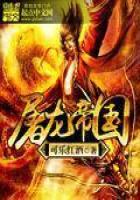Chapter2 Hunchbacked, One Eyed, Lame
Every city during the Middle Ages, and every city in France down to the time of Louis XII. had its places of asylum.These sanctuaries, in the midst of the deluge of penal and barbarous jurisdictions which inundated the city, were a species of islands which rose above the level of human justice.Every criminal who landed there was safe.There were in every suburb almost as many places of asylum as gallows.It was the abuse of impunity by the side of the abuse of punishment; two bad things which strove to correct each other.The palaces of the king, the hotels of the princes, and especially churches, possessed the right of asylum.Sometimes a whole city which stood in need of being repeopled was temporarily created a place of refuge.Louis XI.made all Paris a refuge in 1467.
His foot once within the asylum, the criminal was sacred; but he must beware of leaving it; one step outside the sanctuary, and he fell back into the flood.The wheel, the gibbet, the strappado, kept good guard around the place of refuge, and lay in watch incessantly for their prey, like sharks around a vessel.Hence, condemned men were to be seen whose hair had grown white in a cloister, on the steps of a palace, in the enclosure of an abbey, beneath the porch of a church; in this manner the asylum was a prison as much as any other.It sometimes happened that a solemn decree of parliament violated the asylum and restored the condemned man to the executioner; but this was of rare occurrence.Parliaments were afraid of the bishops, and when there was friction between these two robes, the gown had but a poor chance against the cassock.Sometimes, however, as in the affair of the assassins of Petit-Jean, the headsman of Paris, and in that of Emery Rousseau, the murderer of Jean Valleret, justice overleaped the church and passed on to the execution of its sentences; but unless by virtue of a decree of Parliament, woe to him who violated a place of asylum with armed force!The reader knows the manner of death of Robert de Clermont, Marshal of France, and of Jean de Chons, Marshal of Champagne; and yet the question was only of a certain Perrin Marc, the clerk of a money-changer, a miserable assassin; but the two marshals had broken the doors of Staint-Méry.Therein lay the enormity.
Such respect was cherished for places of refuge that, according to tradition, animals even felt it at times. Aymoire relates that a stag, being chased by Dagobert, having taken refuge near the tomb of Saint-Denis, the pack of hounds stopped short and barked.
Churches generally had a small apartment prepared for the reception of supplicants. In 1407, Nicolas Flamel caused to be built on the vaults of Saint-Jacques de la Boucherie, a chamber which cost him four livres six sous, sixteen farthings, parisis.
At Notre-Dame it was a tiny cell situated on the roof of the side aisle, beneath the flying buttresses, precisely at the spot where the wife of the present janitor of the towers has made for herself a garden, which is to the hanging gardens of Babylon what a lettuce is to a palm-tree, what a porter's wife is to a Semiramis.
It was here that Quasimodo had deposited la Esmeralda, after his wild and triumphant course.As long as that course lasted, the young girl had been unable to recover her senses, half unconscious, half awake, no longer feeling anything, except that she was mounting through the air, floating in it, flying in it, that something was raising her above the earth.From time to time she heard the loud laughter, the noisy voice of Quasimodo in her ear; she half opened her eyes; then below her she confusedly beheld Paris checkered with its thousand roofs of slate and tiles, like a red and blue mosaic, above her head the frightful and joyous face of Quasimodo.Then her eyelids drooped again; she thought that all was over, that they had executed her during her swoon, and that the misshapen spirit which had presided over her destiny, had laid hold of her and was bearing her away.
She dared not look at him, and she surrendered herself to her fate.But when the bellringer, dishevelled and panting, had deposited her in the cell of refuge, when she felt his huge hands gently detaching the cord which bruised her arms, she felt that sort of shock which awakens with a start the passengers of a vessel which runs aground in the middle of a dark night.Her thoughts awoke also, and returned to her one by one.She saw that she was in Notre-Dame; she remembered having been torn from the hands of the executioner; that Phoebus was alive, that Phoebus loved her no longer; and as these two ideas, one of which shed so much bitterness over the other, presented themselves simultaneously to the poor condemned girl; she turned to Quasimodo, who was standing in front of her, and who terrified her; she said to him, —”Why have you saved me?”
He gazed at her with anxiety, as though seeking to divine what she was saying to him. She repeated her question.Then he gave her a profoundly sorrowful glance and fled.She was astonished.
A few moments later he returned, bearing a package which he cast at her feet. It was clothing which some charitable women had left on the threshold of the church for her.
Then she dropped her eyes upon herself and saw that she was almost naked, and blushed. Life had returned.
Quasimodo appeared to experience something of this modesty. He covered his eyes with his large hand and retired once more, but slowly.
She made haste to dress herself. The robe was a white one with a white veil, —the garb of a novice of the H?tel-Dien.
She had barely finished when she beheld Quasimodo returning. He carried a basket under one arm and a mattress under the other.In the basket there was a bottle, bread, and some provisions.He set the basket on the floor and said, “Eat!”He spread the mattress on the flagging and said, “Sleep.”
It was his own repast, it was his own bed, which the bellringer had gone in search of.
The gypsy raised her eyes to thank him, but she could not articulate a word. She dropped her head with a quiver of terror.
Then he said to her.—
“I frighten you. I am very ugly, am I not?Do not look at me; only listen to me.During the day you will remain here; at night you can walk all over the church.But do not leave the church either by day or by night.You would be lost.They would kill you, and I should die.”
She was touched and raised her head to answer him. He had disappeared.She found herself alone once more, meditating upon the singular words of this almost monstrous being, and struck by the sound of his voice, which was so hoarse yet so gentle.
Then she examined her cell. It was a chamber about six feet square, with a small window and a door on the slightly sloping plane of the roof formed of flat stones.Many gutters with the figures of animals seemed to be bending down around her, and stretching their necks in order to stare at her through the window.Over the edge of her roof she perceived the tops of thousands of chimneys which caused the smoke of all the fires in Paris to rise beneath her eyes.A sad sight for the poor gypsy, a foundling, condemned to death, an unhappy creature, without country, without family, without a hearthstone.
At the moment when the thought of her isolation thus appeared to her more poignant than ever, she felt a bearded and hairy head glide between her hands, upon her knees. She started and looked.It was the poor goat, the agile Djali, which had made its escape after her, at the moment when Quasimodo had put to flight Charmolue's brigade, and which had been lavishing caresses on her feet for nearly an hour past, without being able to win a glance.The gypsy covered him with kisses.
“Oh!Djali!”she said; “how I have forgotten thee!And so thou still thinkest of me!Oh!thou art not an ingrate!”
At the same time, as though an invisible hand had lifted the weight which had repressed her tears in her heart for so long, she began to weep, and, in proportion as her tears flowed, she felt all that was most acrid and bitter in her grief depart with them.
Evening came, she thought the night so beautiful that she made the circuit of the elevated gallery which surrounds the church. It afforded her some relief, so calm did the earth appear when viewed from that height.
Chapter3 Deaf
On the following morning, she perceived on awaking, that she had been asleep. This singular thing astonished her.She had been so long unaccustomed to sleep!A joyous ray of the rising sun entered through her window and touched her face.At the same time with the sun, she beheld at that window an object which frightened her, the unfortunate face of Quasimodo.She involuntarily closed her eyes again, but in vain; she fancied that she still saw through the rosy lids that gnome's mask, one-eyed and gap-toothed.Then, while she still kept her eyes closed, she heard a rough voice saying, very gently, —
“Be not afraid. I am your friend.I came to watch you sleep.It does not hurt you if I come to see you sleep, does it?What difference does it make to you if I am here when your eyes are closed!Now I am going.Stay, I have placed myself behind the wall.You can open your eyes again.”
There was something more plaintive than these words, and that was the accent in which they were uttered. The gypsy, much touched, opened her eyes.He was, in fact, no longer at the window.She approached the opening, and beheld the poor hunchback crouching in an angle of the wall, in a sad and resigned attitude.She made an effort to surmount the repugnance with which he inspired her.“Come, ”she said to him gently.From the movement of the gypsy's lips, Quasimodo thought that she was driving him away; then he rose and retired limping, slowly, with drooping head, without even daring to raise to the young girl his gaze full of despair.“Do come, ”she cried, but he continued to retreat.Then she darted from her cell, ran to him, and grasped his arm.On feeling her touch him, Quasimodo trembled in every limb.He raised his suppliant eye, and seeing that she was leading him back to her quarters, his whole face beamed with joy and tenderness.She tried to make him enter the cell; but he persisted in remaining on the threshold.“No, no, ”said he; “the owl enters not the nest of the lark.”
Then she crouched down gracefully on her couch, with her goat asleep at her feet. Both remained motionless for several moments, considering in silence, she so much grace, he so much ugliness.Every moment she discovered some fresh deformity in Quasimodo.Her glance travelled from his knock knees to his humped back, from his humped back to his only eye.She could not comprehend the existence of a being so awkwardly fashioned.Yet there was so much sadness and so much gentleness spread over all this, that she began to become reconciled to it.
He was the first to break the silence.“So you were telling me to return?”
She made an affirmative sign of the head, and said, “Yes.”
He understood the motion of the head.“Alas!”he said, as though hesitating whether to finish, “I am—I am deaf.”
“Poor man!”exclaimed the Bohemian, with an expression of kindly pity.
He began to smile sadly.
“You think that that was all that I lacked, do you not?Yes, I am deaf, that is the way I am made.'Tis horrible, is it not?You are so beautiful!”
There lay in the accents of the wretched man so profound a consciousness of his misery, that she had not the strength to say a word. Besides, he would not have heard her.He went on, —
“Never have I seen my ugliness as at the present moment. When I compare myself to you, I feel a very great pity for myself, poor unhappy monster that I am!Tell me, I must look to you like a beast.You, you are a ray of sunshine, a drop of dew, the song of a bird!I am something frightful, neither man nor animal, I know not what, harder, more trampled under foot, and more unshapely than a pebble stone!”
Then he began to laugh, and that laugh was the most heartbreaking thing in the world. He continued, —
“Yes, I am deaf; but you shall talk to me by gestures, by signs. I have a master who talks with me in that way.And then, I shall very soon know your wish from the movement of your lips, from your look.”
“Well!”she interposed with a smile, “tell me why you saved me.”
He watched her attentively while she was speaking.
“I understand, ”he replied.“You ask me why I saved you.You have forgotten a wretch who tried to abduct you one night, a wretch to whom you rendered succor on the following day on their infamous pillory. A drop of water and a little pity, —that is more than I can repay with my life.You have forgotten that wretch; but he remembers it.”
She listened to him with profound tenderness. A tear swam in the eye of the bellringer, but did not fall.He seemed to make it a sort of point of honor to retain it.
“Listen, ”he resumed, when he was no longer afraid that the tear would escape; “our towers here are very high, a man who should fall from them would be dead before touching the pavement; when it shall please you to have me fall, you will not have to utter even a word, a glance will suffice.”
Then he rose. Unhappy as was the Bohemian, this eccentric being still aroused some compassion in her.She made him a sign to remain.
“No, no, ”said he; “I must not remain too long. I am not at my ease.It is out of pity that you do not turn away your eyes.I shall go to some place where I can see you without your seeing me:it will be better so.”
He drew from his pocket a little metal whistle.
“Here, ”said he, “when you have need of me, when you wish me to come, when you will not feel too ranch horror at the sight of me, use this whistle. I can hear this sound.”
He laid the whistle on the floor and fled.
Chapter4 Earthenware and Crystal
Day followed day. Calm gradually returned to the soul of la Esmeralda.Excess of grief, like excess of joy is a violent thing which lasts but a short time.The heart of man cannot remain long in one extremity.The gypsy had suffered so much, that nothing was left her but astonishment.With security, hope had returned to her.She was outside the pale of society, outside the pale of life, but she had a vague feeling that it might not be impossible to return to it.She was like a dead person, who should hold in reserve the key to her tomb.
She felt the terrible images which had so long persecuted her, gradually departing. All the hideous phantoms, Pierrat Torterue, Jacques Charmolue, were effaced from her mind, all, even the priest.
And then, Phoebus was alive; she was sure of it, she had seen him. To her the fact of Phoebus being alive was everything.After the series of fatal shocks which had overturned everything within her, she had found but one thing intact in her soul, one sentiment, —her love for the captain.Love is like a tree; it sprouts forth of itself, sends its roots out deeply through our whole being, and often continues to flourish greenly over a heart in ruins.
And the inexplicable point about it is that the more blind is this passion, the more tenacious it is. It is never more solid than when it has no reason in it.
La Esmeralda did not think of the captain without bitterness, no doubt. No doubt it was terrible that he also should have been deceived; that he should have believed that impossible thing, that he could have conceived of a stab dealt by her who would have given a thousand lives for him.But, after all, she must not be too angry with him for it; had she not confessed her crime?had she not yielded, weak woman that she was, to torture?The fault was entirely hers.She should have allowed her finger nails to be torn out rather than such a word to be wrenched from her.In short, if she could but see Phoebus once more, for a single minute, only one word would be required, one look, in order to undeceive him, to bring him back.She did not doubt it.She was astonished also at many singular things, at the accident of Phoebus's presence on the day of the penance, at the young girl with whom he had been.She was his sister, no doubt.An unreasonable explanation, but she contented herself with it, because she needed to believe that Phoebus still loved her, and loved her alone.Had he not sworn it to her?What more was needed, simple and credulous as she was?And then, in this matter, were not appearances much more against her than against him?Accordingly, she waited.She hoped.
Let us add that the church, that vast church, which surrounded her on every side, which guarded her, which saved her, was itself a sovereign tranquillizer.The solemn lines of that architecture, the religious attitude of all the objects which surrounded the young girl, the serene and pious thoughts which emanated, so to speak, from all the pores of that stone, acted upon her without her being aware of it. The edifice had also sounds fraught with such benediction and such majesty, that they soothed this ailing soul.The monotonous chanting of the celebrants, the responses of the people to the priest, sometimes inarticulate, sometimes thunderous, the harmonious trembling of the painted windows, the organ, bursting forth like a hundred trumpets, the three belfries, humming like hives of huge bees, that whole orchestra on which bounded a gigantic scale, ascending, descending incessantly from the voice of a throng to that of one bell, dulled her memory, her imagination, her grief.The bells, in particular, lulled her.It was something like a powerful magnetism which those vast instruments shed over her in great waves.
Thus every sunrise found her more calm, breathing better, less pale. In proportion as her inward wounds closed, her grace and beauty blossomed once more on her countenance, but more thoughtful, more reposeful.Her former character also returned to her, somewhat even of her gayety, her pretty pout, her love for her goat, her love for singing, her modesty.She took care to dress herself in the morning in the corner of her cell for fear some inhabitants of the neighboring attics might see her through the window.
When the thought of Phoebus left her time, the gypsy sometimes thought of Quasimodo. He was the sole bond, the sole connection, the sole communication which remained to her with men, with the living.Unfortunate girl!she was more outside the world than Quasimodo.She understood not in the least the strange friend whom chance had given her.She often reproached herself for not feeling a gratitude which should close her eyes, but decidedly, she could not accustom herself to the poor bellringer.He was too ugly.
She had left the whistle which he had given her lying on the ground. This did not prevent Quasimodo from making his appearance from time to time during the first few days.She did her best not to turn aside with too much repugnance when he came to bring her her basket of provisions or her jug of water, but he always perceived the slightest movement of this sort, and then he withdrew sadly.
Once he came at the moment when she was caressing Djali.He stood pensively for several minutes before this graceful group of the goat and the gypsy; at last he said, shaking his heavy and ill-formed head, —
“My misfortune is that I still resemble a man too much. I should like to be wholly a beast like that goat.”
She gazed at him in amazement.
He replied to the glance, —
“Oh!I well know why, ”and he went away.
On another occasion he presented himself at the door of the cell at the moment when la Esmeralda was singing an old Spanish ballad, the words of which she did not understand, but which had lingered in her ear because the gypsy women had lulled her to sleep with it when she was a little child. At the sight of that villanous form which made its appearance so abruptly in the middle of her song, the young girl paused with an involuntary gesture of alarm.The unhappy bellringer fell upon his knees on the threshold, and clasped his large, misshapen hands with a suppliant air.“Oh!”he said, sorrowfully, “continue, I implore you, and do not drive me away.”She did not wish to pain him, and resumed her lay, trembling all over.By degrees, however, her terror disappeared, and she yielded herself wholly to the slow and melancholy air which she was singing.He remained on his knees with hands clasped, as in prayer, attentive, hardly breathing, his gaze riveted upon the gypsy's brilliant eyes.
On another occasion, he came to her with an awkward and timid air.“Listen, ”he said, with an effort; “I have something to say to you.”She made him a sign that she was listening. Then he began to sigh, half opened his lips, appeared for a moment to be on the point of speaking, then he looked at her again, shook his head, and withdrew slowly, with his brow in his hand, leaving the gypsy stupefied.Among the grotesque personages sculptured on the wall, there was one to whom he was particularly attached, and with which he often seemed to exchange fraternal glances.Once the gypsy heard him saying to it, —
“Oh!why am not I of stone, like you!”
At last, one morning, la Esmeralda had advanced to the edge of the roof, and was looking into the Place over the pointed roof of Saint-Jean le Rond. Quasimodo was standing behind her.He had placed himself in that position in order to spare the young girl, as far as possible, the displeasure of seeing him.All at once the gypsy started, a tear and a flash of joy gleamed simultaneously in her eyes, she knelt on the brink of the roof and extended her arms towards the Place with anguish, exclaiming:“Phoebus!come!come!a word, a single word in the name of heaven!Phoebus!Phoebus!”Her voice, her face, her gesture, her whole person bore the heartrending expression of a shipwrecked man who is making a signal of distress to the joyous vessel which is passing afar off in a ray of sunlight on the horizon.
Quasimodo leaned over the Place, and saw that the object of this tender and agonizing prayer was a young man, a captain, a handsome cavalier all glittering with arms and decorations, prancing across the end of the Place, and saluting with his plume a beautiful lady who was smiling at him from her balcony. However, the officer did not hear the unhappy girl calling him; he was too far away.
But the poor deaf man heard. A profound sigh heaved his breast; he turned round; his heart was swollen with all the tears which he was swallowing; his convulsively-clenched fists struck against his head, and when he withdrew them there was a bunch of red hair in each hand.
The gypsy paid no heed to him. He said in a low voice as he gnashed his teeth, —
“Damnation!That is what one should be like!‘Tis only necessary to be handsome on the outside!”
Meanwhile, she remained kneeling, and cried with extraor-dinary agitation, —“Oh!there he is alighting from his horse!He is about to enter that house!—Phoebus!—He does not hear me!Phoebus!—How wicked that woman is to speak to him at the same time with me!Phoebus!Phoebus!”















